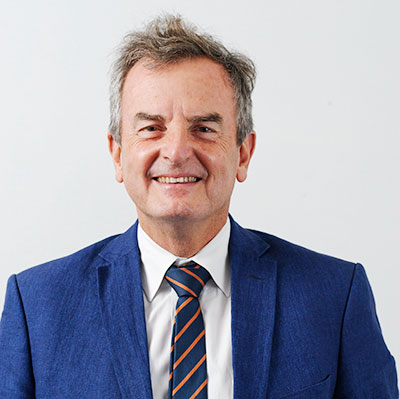With the Acquisition of Gemalto, the Company’s Presence Has Become Even Stronger in India and has Brought us Closer to New Customers
 How can Thales help in building India’s defence-industrial capacities?
How can Thales help in building India’s defence-industrial capacities?
Present in India since 1953, Thales has been instrumental in providing expertise for the development of the defence sector. The company has built up a reputation of being a trusted partner to all three branches of the Indian armed forces. From designing smart sensors and advanced defence systems, to developing collaborative combat, and connecting and equipping soldiers on the digital battlefield, Thales’ systems deliver information superiority and give joint forces mastery of action whenever they face their decisive moments.
Thales’ strategy of developing its industrial footprint in India is in line with the Indian government’s policy of ‘Make in India’ and of developing the defence base of the country. The company’s local co-operative partnerships and joint ventures with public and private sector industries reinforce its commitment to the country. It has several local co-development initiatives which have increased manifold over the years. The company is constantly delivering high value-added solutions to help customers master their decisive moments in an increasingly complex world.
Can you share details about the supply chain that Thales has developed in India over the last few decades, both in the commercial as well as defence domain?
Thales has been co-operating with the Indian private sector, particularly large corporate players, SMEs and MSMEs, to build transfer of technology and supply chain partnerships in the fields of complex electronics, wired mechanical structures, optronics, complex hardware and software engineering, among others.
The company ensures and increases the value of the Indian supply chain partners in its global supply chain ecosystem. It has over 50 offset partners engaged in global supply chain, and over 75 supply chain partners across defence and ground transportation markets. Such partnerships, for example with Mistral for X Band Exciter for Airborne SAR & PA Radar and control unit for in-flight video system, have led to an increase in design and development in India in the last two years. Some of Thales’ other supply chain partners include companies like Cyient, Centum, SFO, HCL, Hical, among others in various capacities.
Thales is developing local partnerships and co-developing products to address the Indian market as well as the exports from India. The company’s local partnerships and JVs in India are a testament to its long-standing relationship with the country. Working closely with Hindustan Aeronautics Limited (HAL) for over 50 years, Thales has been providing high-end avionics to equip the platforms that HAL is designing. The company has a strong working relationship with Bharat Electronics Limited (BEL) with whom it has formed a joint venture (JV) BEL-Thales Systems Limited (BTSL) dedicated to civilian and select ground-based military radars. Thales also has JVs with Samtel, L&T Technology Services and Reliance Aerostructures in the fields of military avionics and airborne sensor systems, avionics software, and electronic warfare and radars, respectively.
Currently, Thales employs 2,500 people both directly and indirectly through the supply chain partnerships built over the years. Thales plans to double this number in the next two-three years as the company is looking forward to developing capabilities for local engineering, procurement from India and strengthening its local partnerships.
How much of this supply chain caters to global exports?
In 2018, Thales had sourced products and services worth over €100 million and more than 95 per cent of it constitutes exports.
Do you see any possibilities of joint research and development on some technologies/ programmes with the Indian entities?
For years, the Indian government has pursued a proactive policy to develop R&D and create high value-added infrastructure. To meet these ambitions, India trains hundreds of thousands of highly qualified engineers every year and is positioning itself as the largest engineering resource in the world. With the launch of first-of-its-kind Engineering Competence Centre (ECC) in India early this year, Thales seeks to play a major role in job creation and skill development in India as it targets to hire 3,000 engineers in the next three-five years along with its partners. This Centre focuses on software and hardware capabilities in the areas of civil as well as defence businesses, serving Thales’s global needs.
Thales is also working closely with premier academic institutions in India such as IIT Madras, IIT Delhi, IIT Bombay and IISc Bangalore. These co-operations underline Thales’ research focus and collaborations with academia to create technologies for smarter and faster decision making for problem solving in complex situations.
Besides, Thales and BTSL are jointly developing the PHAROS fire control radar for gun and missile systems that will cater to both domestic Indian and international markets. BTSL will also be undertaking the production of the LBREC – Low Band Receiver of the self-protection suite of the Rafale. In addition, the Passive Radar will also be manufactured by BTSL under the IDDM concept with assistance from Thales.
Thales is a powerhouse of innovation with operations in 68 countries across the world and continues to invest heavily in research and technology to support its customers across all its five market segments.
You must be logged in to view this content.

